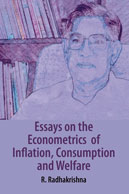New Releases...
Download Catalogue...
Download Excel Data
Download PDF Catalogue
You will get a Excel file with detail about catalogue.
You will get PDF file with detail about catalogue.
Detailed info...

Hard-cover • 2008
Pages: 432
ISBN: 9788171886197
INR 995
+ Add to Cart
Publisher:
Academic Foundation
Development in Karnataka
Challenges of Governance, Equity and Empowerment
Vijayendra Rao‚ Ravi Kanbur‚ Gopal K. Kadekodi
About the Book
<p>Karnataka was founded 50 years ago and in those decades has embodied the challenges and contradictions that are faced by the rest of India—spectacular technology-led growth in Bangalore tempered with an abiding sense of the city's ungovernability, enduring gender inequity and regional disparities, and a visibly increasing gap between urban and rural areas. Yet, Karnataka is also increasingly being seen as a model of development. Bangalore's metamorphosis from a noun to a verb is the archetypical symbol of an India "unbound", and Karnataka's pioneering experiment with Panchayati Raj reform under the Hegde government in the 1980's sparked the 73rd amendment to the Indian Constitution and the consequent and continuing wave of devolutions in finance and power to panchayats. This emphasis on technology-led growth coupled with local government reform is, at least in theory, a singularly innovative strategy to address the challenge of generating growth with equity and can be described as the "Karnataka Model" of development.</p>
<p> </p>
<p>This volume brings together contributions from leading national and international scholars to examine this model of development in detail. It covers politics and policy, civil society and governance, and a wide range of sectoral perspectives and interventions. It highlights the many challenges that confront Karnataka as it enters the second half century of its existence as an Indian state. The analysis and perspectives in the volume, and the lessons that can be learned from the Karnataka experience, will be useful to students, researchers and policy makers in India and across the world.</p>
About the Author(s) / Editor(s)
<p><strong>Gopal K. Kadekodi </strong>was formerly Director of the Institute for Social and Economic Change (ISEC), Bangalore. He has been Research Professor at the Centre for Multi-Disciplinary Development Research, Dharwad for four years and a Professor at the Institute of Economic Growth, New Delhi for over 25 years. He was Visiting Professor at the Erasmus University, Rotterdam, and the Technical University, Twente. His areas of research include common property resources, energy, environment and economic development. He has been the President of the Indian Society for Ecological Economics. He was the Editor of Journal of Social and Economic Development, and has been on the Editorial Boards of Environment and Resource Economics, The Pacific and Asian Journal of Energy and Journal of Quantitative Economics. He has published over 12 books and more than 100 articles in national and international journals.</p>
<p> </p>
<p><strong>Ravi Kanbur</strong> is the T.H. Lee Professor of World Affairs and Economics at Cornell University. During 2004-05 he was the V.K.R.V. Rao Chair Professor at ISEC, Bangalore. He has previously served as the senior staff of the World Bank. His research interests span public economics and development economics and he has published articles on these topics in leading economics journals.</p>
<p> </p>
<p><strong>Vijayendra Rao</strong> is a Lead Economist in the Development Economics Research Group of the World Bank. He received his BA from St. Xavier’s College, Mumbai, his PhD from the University of Pennsylvania, and has held academic appointments at Brown, Chicago, Michigan and Williams College. His research—much of it based on fieldwork in Karnataka—integrates economic and anthropological methods to inform poverty-reduction policies in poor countries. He has published several papers in leading journals on the broad themes of decentralised local development, gender inequality, culture and economic behaviour and mixing qualitative and quantitative methods, and co-edited Culture and Public Action.</p>
Contributors
<p><strong>Kripa Ananthpur </strong>is Assistant Professor at the Madras Institute of Development Studies, Chennai, India. Her broad area of specialisation is governance and civil Society. She has worked extensively in this area studying the dynamics of farmers’ movements and organisations, voluntary organisations, village forest committees and their interface with formal local governments. She is currently coordinating a cross-country comparative research study with partners from India, Indonesia and Pakistan on informal institutions and state capacity, funded by the Centre for Future State, Institute of Development Studies, UK.</p>
<p> </p>
<p><br />
<strong>Timothy Besley</strong> is Professor of Economics and Political Science at the LSE and a Member of the Monetary Policy Committee of the Bank of England. He is a Fellow of the Econometric Society and the British Academy, and was a 2005 winner of the Yrjö Jahnsson award. His research interests are in development economics, public economics and political economy.</p>
<p> </p>
<p><br />
<strong>Asha George</strong> is a Research Consultant for the Gender and Health Equity Project at the Indian Institute of Management–Bangalore. She has a background in reproductive health and health systems analysis. Her recent research is on accountability in primary healthcare from the perspective of health workers. Her forthcoming publications include an international review of gender and human resources for health and an edited volume on health providers in India.</p>
<p> </p>
<p><br />
<strong>Ronald Herring </strong>teaches political economy and political ecology at Cornell University, where he is Professor of Government. His recent works include connections between aid and ethnicity (Carrots, Sticks and Ethnic Conflict: Rethinking Development Assistance) and genetic engineering in development studies (Transgenics and the Poor).</p>
<p> </p>
<p><br />
<strong>Anand Inbanathan</strong> is an Associate Professor, Sociology, in the Institute for Social and Economic Change, Bangalore. He has carried out research in areas such as occupational health in sericulture, decentralisation and political participation, and rural development, and has also published articles in these areas.</p>
<p> </p>
<p><br />
<strong>Aditi Iyer</strong> is a Research Consultant for the Gender and Health Equity Project at the Indian Institute of Management–Bangalore. Her research interests focus on gender and the political economy of health and health systems. She is currently studying the intersections between gender, class and caste in relation to health in Koppal district, Karnataka.</p>
<p> </p>
<p><br />
<strong>Devaki Jain, </strong>a development economist, serves on the governing body of several research centres, and government committees in India. Her research interest is in women and governance, as well as feminist economics. She has published several books as well as articles which have appeared in leading journals and books, which explore and document women’s engagement with development and politics.</p>
<p> </p>
<p><br />
<strong>Gopal K. Kadekodi </strong>was formerly Director of the Institute for Social and Economic Change (ISEC), Bangalore. He has been Research Professor at the Centre for Multi-Disciplinary Development Research, Dharwad for four years and a Professor at the Institute of Economic Growth, New Delhi for over 25 years. He was Visiting Professor at the Erasmus University, Rotterdam, and the Technical University, Twente. His areas of research include common property resources, energy, environment and economic development. He has been the President of the Indian Society for Ecological Economics. He was the Editor of Journal of Social and Economic Development, and has been on the Editorial Boards of Environment and Resource Economics, The Pacific and Asian Journal of Energy and Journal of Quantitative Economics. He has published over 12 books and more than 100 articles in national and international journals.</p>
<p> </p>
<p><br />
<strong>Ravi Kanbur i</strong>s the T.H. Lee Professor of World Affairs and Economics at Cornell University. During 2004-05 he was the V.K.R.V. Rao Chair Professor at ISEC, Bangalore. He has previously served as the senior staff of the World Bank. His research interests span public economics and development economics and he has published articles on these topics in leading economics journals.</p>
<p> </p>
<p><br />
<strong>G.K. Karanth</strong> is a Professor of Sociology and heads the Centre for Social Change and Development in ISEC. He was formerly teaching in the Department of Sociology, Mangalore University. His work in the past has ranged from agrarian sociology, social mobility of the socioculturally deprived sections of society, to the working of new technologies for healthcare, and issues of child labour. Several of his papers based on work on these themes have appeared in leading journals and as books and monographs.</p>
<p> </p>
<p><br />
<strong>Neema Kudva</strong> teaches in the Department of City and Regional Planning at the Cornell University. Her research focuses on understanding institutional arrangements and organisational practices for local level planning and development; another research interest is secondary urbanisation. She is currently involved in a project that examines urban transformations in coastal South Karnataka.</p>
<p> </p>
<p><br />
<strong>S. Madheswaran </strong>is Associate Professor in the Centre for Economic Studies and Policy at ISEC, Bangalore. His research interest includes labour economics, economics of education and applied econometrics. He has published articles on these topics in refereed economic journals.</p>
<p> </p>
<p><br />
<strong>James Manor</strong> is the Emeka Anyaoku Professor at the Institute of Commonwealth Studies, University of London, and V.K.R.V. Rao Professor at ISEC, Bangalore. He focuses mainly on politics and state-society relations. He has previously taught at Yale, Harvard and Leicester Universities, and at the Institute of Development Studies, University of Sussex.</p>
<p> </p>
<p><br />
<strong>M.R. Narayana</strong> is a Professor at the Centre for Economic Studies and Policy at the ISEC, Bangalore. His current research areas include economics of information technology and telecommunications demand. His latest research on “Consumer Demand for Telecom Services in Karnataka and Goa” is sponsored by the Department of Telecommunications, Government of India. He has widely published on topics in general economics in journals and edited volumes in India and abroad.</p>
<p> </p>
<p><br />
<strong>Rohini Pande</strong> is the Mohamed Kamal Professor of Public Policy at the Kennedy School of Government, Harvard Unversity. Her research focuses on the economic analysis of the politics and consequences of different forms of redistribution, principally in developing countries.</p>
<p> </p>
<p><br />
<strong>Pamela Price </strong>is a historian, teaching at the University of Oslo. She began her career writing about the colonial period, but moved into the study of post-colonial political culture after moving to Norway. Since then, she has written on ideas and values of honour and authority in Karnataka, Tamil Nadu and Andhra Pradesh.</p>
<p> </p>
<p><br />
<strong>D. Rajasekhar,</strong> Professor and Head, Centre for Decentralisation and Development, ISEC, Bangalore, is a Development Economist with specialisation in decentralisation, micro-finance, social protection for unorganised workers, and rural development. He has published 17 books and over 50 research articles in various journals and edited books.</p>
<p> </p>
<p><br />
<strong>Ramesh Ramanathan</strong> is co-founder, Janaagraha, a civil society institution working on urban governance reforms in India. Their work focuses on deepening democratic processes by expanding political space for decision making, and strengthening key political actors—citizens and elected representatives—to use these spaces. He is the coauthor of a book on urban poverty in India, and his interests include financial inclusion in the urban areas.</p>
<p> </p>
<p><br />
<strong>Vijayendra Rao</strong> is a Lead Economist in the Development Economics Research Group of the World Bank. He received his BA from St. Xavier’s College, Mumbai, his PhD from the University of Pennsylvania, and has held academic appointments at Brown, Chicago, Michigan and Williams College. His research—much of it based on fieldwork in Karnataka—integrates economic and anthropological methods to inform poverty-reduction policies in poor countries. He has published several papers in leading journals on the broad themes of decentralised local development, gender inequality, culture and economic behaviour and mixing qualitative and quantitative methods, and co-edited Culture and Public Action.</p>
<p> </p>
<p><br />
<strong>Gita Sen </strong>is Professor at the Centre for Public Policy of the Indian Institute of Management in Bangalore. She has worked extensively on gender and development, combining research and teaching with policy advocacy and civil society activism. Her current action-research project on gender and health equity in north Karnataka allows her to bring local level insights to her policy work as coordinator of the knowledge network on the same subject for the WHO’s Commission on the Social Determinants of Health.</p>
<p> </p>
<p><br />
<strong>Dattathreya Subbanarasimha</strong> teaches law and social sciences at the Christ College of Law, Bangalore. He is also finishing a PhD in sociocultural anthropology (on issues surrounding the peasantry in contemporary Karnataka) at the Columbia University. He has written and published extensively in a wide range of areas, including human rights, Kannada cultural and literary criticism, the social sciences, psychotherapy, and the sociology and history of science; and in a wide range of fora, including books, professional journals, web journals and newspapers.</p>
<p> </p>
<p><br />
<strong>J.Y. Suchitra</strong> is a researcher with the Centre for Decentralisation and Development, ISEC, Bangalore. Her main areas of interest are labour and institutional economics and for the past two years, she has been undertaking research relating to social protection for the unorganised work force, microfinance as a tool to reduce vulnerability, and child labour. She has published books and papers on these topics.</p>
<p> </p>
<p><br />
<strong>G. Thimmaiah</strong> is currently Hon. Visiting Fellow at the ISEC, Bangalore. He was Professor of Economics since 1973 and Director (1984-1987) of the Institute. He was Economic Adviser to the Government of Karnataka (1987-1994) and Member, Planning Commission (1996-1998). He was also ICSSR National Fellow (1998-2000). His area of research has been in public finance.</p>
<p> </p>
<p><br />
<strong>Ananda Vadivelu </strong>is a Doctoral Fellow at ISEC, Bangalore and works as a Research Associate at the Centre for Interdisciplinary Studies in Environment and Development (CISED), Bangalore. His research interests span issues related to watershed development, common property studies, property rights issues in groundwater and the Food for Work Programme. He intends to work and colloborate with institutions working on action research projects.</p>
<p> </p>
<p><br />
<strong>V. Vijayalakshmi </strong>works for Oxfam International. Her research interests are in the areas of governance, decentralisation, and political participation, and she has published widely on these topics.</p>
Print Brochure...
Print as it is
Customised brochure
You will get a printout of what you see on your screen under 'Detailed Info'(Uneditable).
You will have the opportunity to edit the text and adjust the extent to fit on A4 size sheet or more accordingly as you desire. Plus, you can download the edited/customised Brochure or simply print it (CTRL + P).


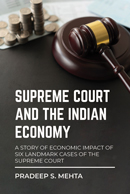



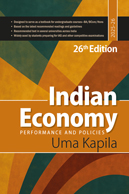
-web-194.jpg)
-front.jpg)
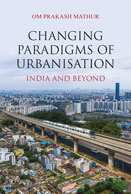






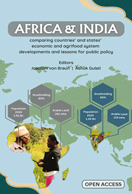
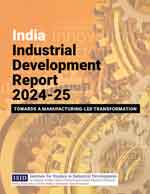
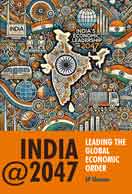
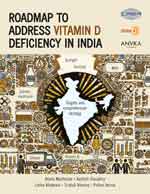
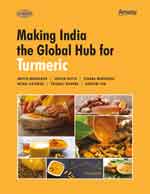
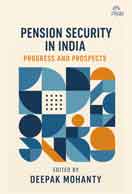
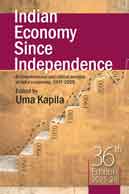
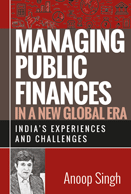
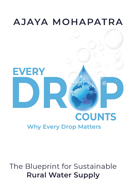
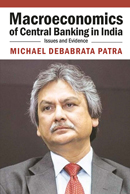

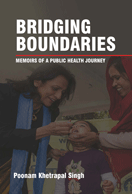

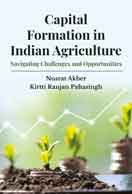











-COVER-web-194.jpg)





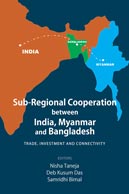






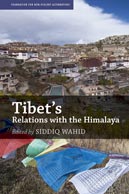



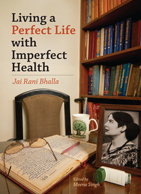













.jpg)






